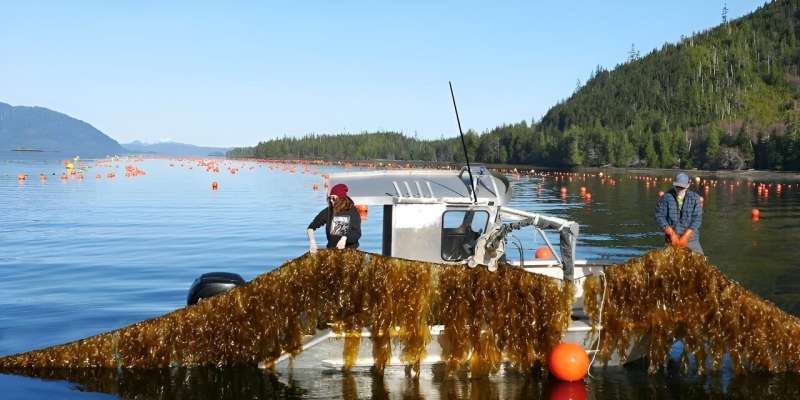This article has been reviewed according to Science X's editorial process and policies. Editors have highlighted the following attributes while ensuring the content's credibility:
fact-checked
peer-reviewed publication
trusted source
proofread
How to design policies that support both aquaculture and small-scale fisheries

Marine aquaculture has expanded dramatically over the last two decades to meet growing demand for aquatic foods, but this growth can sometimes come at a cost. New Stanford-led research published in npj Ocean Sustainability explores how investments in the aquaculture industry can affect small-scale marine fisheries, and how policy changes can support livelihoods, equity, and sustainability.
"Many governments are promoting and investing in the development of aquaculture because of its huge potential in supporting food security and livelihood goals," said Elizabeth Mansfield, Ph.D. '22, who led the research with her Ph.D. advisor, Stanford Doerr School of Sustainability professor Fiorenza Micheli. However, she continued, without careful consideration, such development could hinder critical small-scale fisheries.
The research team analyzed 46 diverse case studies from 30 countries to identify interactions that generate positive environmental, social, or economic outcomes, as well as those resulting in tradeoffs and negative impacts for small-scale fisheries.
"One positive example was seaweed farming in Alaska," said co-author Mary Ruckelshaus, executive director of the Stanford-based Natural Capital Project. "Fishers were included in aquaculture development and were able to engage in seaweed farming during the off season of salmon fishing. A collaborative approach between aquaculture and small-scale fisheries allowed for positive outcomes for both sectors."
The study investigated how access to resources, market and supply chain interactions, and risks from factors like disease and climate change could influence the outcomes of how aquaculture and small-scale fisheries interact. Additionally, it reveals strategies for decision-makers aiming to invest in both aquaculture development and sustainable and equitable small-scale fisheries.
Key findings
- More than half of the 46 case studies highlighted social, economic, or environmental benefits from the interaction between aquaculture and small-scale fisheries. However, in one-third of the case studies, tradeoffs emerged. The most common tradeoffs involved increased competition for customers and fishing-ground space.
- The policy options modeled in the study often resulted in negative equity outcomes like women in small-scale fisheries being squeezed out of economic opportunities or aquaculture development compromising food production for local communities. This underscores the importance of policymakers engaging directly with and continuing to invest in the small-scale fisheries sector to better understand potential challenges and avoid unintended consequences.
- Policies that establish clear and equitable rights and access, reduce market competition, and mitigate risks from climate change can enhance benefits and minimize conflict between aquaculture and small-scale fisheries.
- Case study outcomes depended on context, emphasizing the need for collaborative and adaptive approaches to aquaculture implementation. Decision-makers should set clear goals, understand the needs, challenges, and goals of local small-scale fisheries, and consider the impact of access, rights, markets, and risk management on food production, livelihoods, equity, and ecological outcomes.
- Beyond effective implementation, continuous monitoring and adaptation in the long-term are crucial for addressing potential tradeoffs and enhancing the sustainability of both aquaculture and small-scale fisheries.
More information: Elizabeth J. Mansfield et al, Anticipating trade-offs and promoting synergies between small-scale fisheries and aquaculture to improve social, economic, and ecological outcomes, npj Ocean Sustainability (2024). DOI: 10.1038/s44183-023-00035-5
Journal information: npj Ocean Sustainability
Provided by Stanford University





















